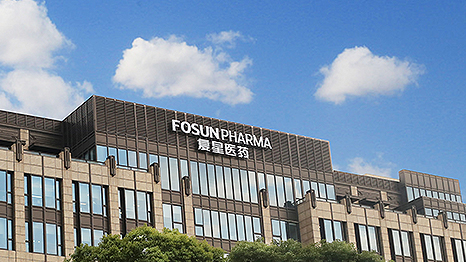Building a Malaria-free World: Fosun Pharma Working with World-renowned Malaria Experts to Explore New Trends in Malaria Prevention in Children and Pregnant Women

Since the first eCME was held in 2014, Fosun Pharma has held 9 online academic conferences on different topics in 7 years focusing on malaria and other public health hotspots in Africa. The eCME has become one of the most influential academic public welfares of Fosun Pharma. Fosun Pharma has always considered the elimination of malaria as part of its corporate social responsibility and has carried this belief through the development and manufacturing of antimalarials as well as terminal marketing.
The eCME program is designed to provide an online academic platform to Africa’s healthcare professionals through internet-based multimedia interactions such as video conferences, to help them catch up the latest medical developments, and offer them a face-to-face interaction opportunity with the world’s top experts while improving their professional skills and advancing healthcare development in Africa. At this eCME, doctors, pharmacists, health officials and NGO representatives, a total of 700 attendees from 14 African countries, gathered to learn more about the cutting-edge progress in malaria prevention and discuss the implementation of new programs in Africa.

The opening address was given by Mr. Dongming Li, Co-President of Fosun Pharma and President of Shanghai Fosun Pharmaceutical Industrial. He emphasized that “Fosun Pharma has a globally-leading research and development platform of antimalarials. The products include preventive, conventional drugs for malaria, as well as first aid drugs for patients with severe malaria, making the Company becoming the world's largest supplier of antimalarials." and that “So far, we have 20 WHO PQ antimalarials, which makes Fosun Pharma the pharmaceutical company with the highest number of PQ antimalarials”. Mr. Li also expressed Fosun Pharma’s concern to the fight against COVID-19 in Africa, “Since April 2020, Fosun Pharma has donated around $200,000 worth of virus prevention materials and equipment. The materials are intended to be used by front-line healthcare workers to alleviate the burden on the local health system and achieve the goal of malaria prevention and control.”

We invited two prominent international experts in malaria: Professor Dr. Kamija Phiri (Professor of Public Health and Clinical Epidemiology, College of Medicine, University of Malawi), and Professor Dr. Feiko O. ter Kuile (Professor of Clinical Tropical Medicine from Liverpool School of Tropical Medicine). The experts shared online about their new scientific advances in malaria prevention and interacted actively with African medical workers.

Professor Kamija Phiri first introduced his study on the post-discharge malaria chemoprevention (PMC) of severe malaria in pre-school children in Africa and related clinical study progress. Indeed, children aged under 5 years are the most vulnerable group affected by malaria. They accounted for 67% of all malaria deaths worldwide (WHO: World Malaria Report 2019). Professor Phiri and his team led several large-scale clinical studies in Southeast Africa such as Malawi, Kenya and Uganda. These studies show that PMC is highly effective in reducing the risk of death or readmission in children of severe malaria with anemia post-discharge. PMC is also highly effective in reducing malaria-related diseases such as anemia, severe malaria and uncomplicated malaria. Lastly, Professor Phiri introduced the progress of PMC delivery study to the attendees to help better implement the PMC program in Africa in the future.

The second part of the eCME was a 1-hour Q&A session, in which attendees raised questions to both professors. Public health workers and clinicians from 14 African countries discussed many problems and solutions that may be encountered in clinical practice with two experts. Dr. Joseph Adoyo from Kenya said: "We learned excellent knowledge about malaria prevention in this eCME." Dr. Abel from Uganda said: "Great to see that PMC test had excellent results. Policymakers need to update medication guidelines in time to help save the lives of our children."





